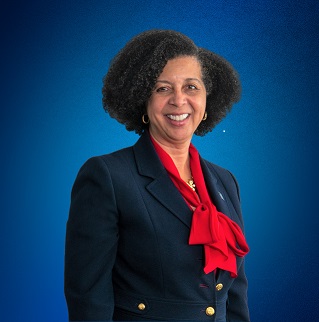As we wrap up our Fair Housing Month series, it is crucial to acknowledge the significant role real estate professionals play in advancing fair housing practices. In this final post, we reflect on both the progress made and the challenges that remain in achieving fair housing for all. We continue to explore the persistent disparities affecting marginalized groups and the initiatives aimed at fostering equal opportunities in housing.
This week, we connected with Sharon McLennon, real estate broker/owner of Coldwell Banker Splendor Realty, who discussed the importance of awareness, education and inclusivity in advancing fair housing initiatives while addressing ongoing challenges in the industry.

How has fair housing progressed over the past few years in your opinion?
McLennon: Fair housing has seen significant progress over recent years, largely due to increased awareness and dedicated efforts within the industry as well as within Coldwell Banker. In the time I have been associated with the brand, I have seen a notable increase in the energy and resources devoted to emphasizing the importance of fair housing.
Real estate professionals who may not have understood fair housing are now more aware of its importance – a shift which has led to more informed discussions and acknowledgment of the ongoing issues in the industry. It is encouraging to see an increase in awareness and targeted educational efforts, both of which have contributed to the ongoing pursuit of fair housing.
Do you have any personal stories that you’d like to share related to fair housing?
McLennon: I recall a particularly shocking occasion when I was listing a home and my client stated they did not want to sell their house to a person of color due to fears of upsetting their neighbors. This blunt discrimination took me by surprise not only because of its openness, but also because the sellers did not realize that I belonged to the group they were discriminating against. After overcoming the initial shock of such a request, I emphasized to the seller that as a broker, my role includes ensuring their actions comply with fair housing laws. I reminded them that the buyer’s identity, including their race or even their name, should not influence the transaction. My goal is to guide sellers to prioritize what truly matters – ensuring a fair and legal process for everyone involved.
What still needs to be done to create equal housing opportunities for all in your opinion?
McLennon: To create equal housing opportunities for all, it is essential to address the significant affordability challenges in our housing market. This is especially true for my team and I in our home base of Fort Lauderdale. Living costs are increasing as the diversity of the area, wide array of activities and warm weather continue to attract more residents. While it is wonderful that the city is such an attractive destination for many, it is hard to focus on addressing fair housing issues when the affordability gap continues to widen, and communities continue to be pushed out of neighborhoods.
Additionally, the potential for digital discrimination in our communication strategies presents another crucial challenge. Because we rely heavily on digital platforms in our outreach and they increasingly allow for content customization, there is a risk that subtle biases in how information is presented could lead to unintentional discrimination. Individuals or specific groups might receive information tailored in ways that unknowingly disadvantage them, impacting their access to housing opportunities. We must work to understand and address these digital nuances to ensure they do not reverse the positive changes that have already been achieved. Promoting tolerance and encouraging everyone to respect as well as embrace diverse perspectives and lifestyles is vital as these efforts help support progress towards a more inclusive society.
How do inclusion and representation impact fair housing?
McLennon: Inclusion and representation ensure that diverse perspectives are heard in decision-making spaces. As an active board member involved in local trade groups, I recognize the importance of seeing oneself represented in these critical spaces. I attended a conference where a speaker stated, “If you are not at the table, chances are you’re on the menu.” This phrase resonated with me as it highlights the essential role of active participation and representation – it puts you at the table so that your perspective is heard and a better decision can be made.
Having individuals from different communities at the table creates a valuable opportunity to embrace diverse viewpoints and integrate them into the decision-making process. As someone naturally curious, I thrive on hearing different ideas and evaluate them against my own – a practice that not only enhances my understanding but also ensures that my viewpoints are well-rounded.
Driving Fair Housing Awareness Year-Round
As we reach the end of National Fair Housing Month, visit the Blue Matter blog to read how other leaders in this series are addressing fair housing in their communities and where they believe change needs to be made. There has been great progress made in the industry already, however, there remain many open doors for increased awareness, progress and growth. We encourage everyone to engage with their local leaders to learn how they can be part of the change.






